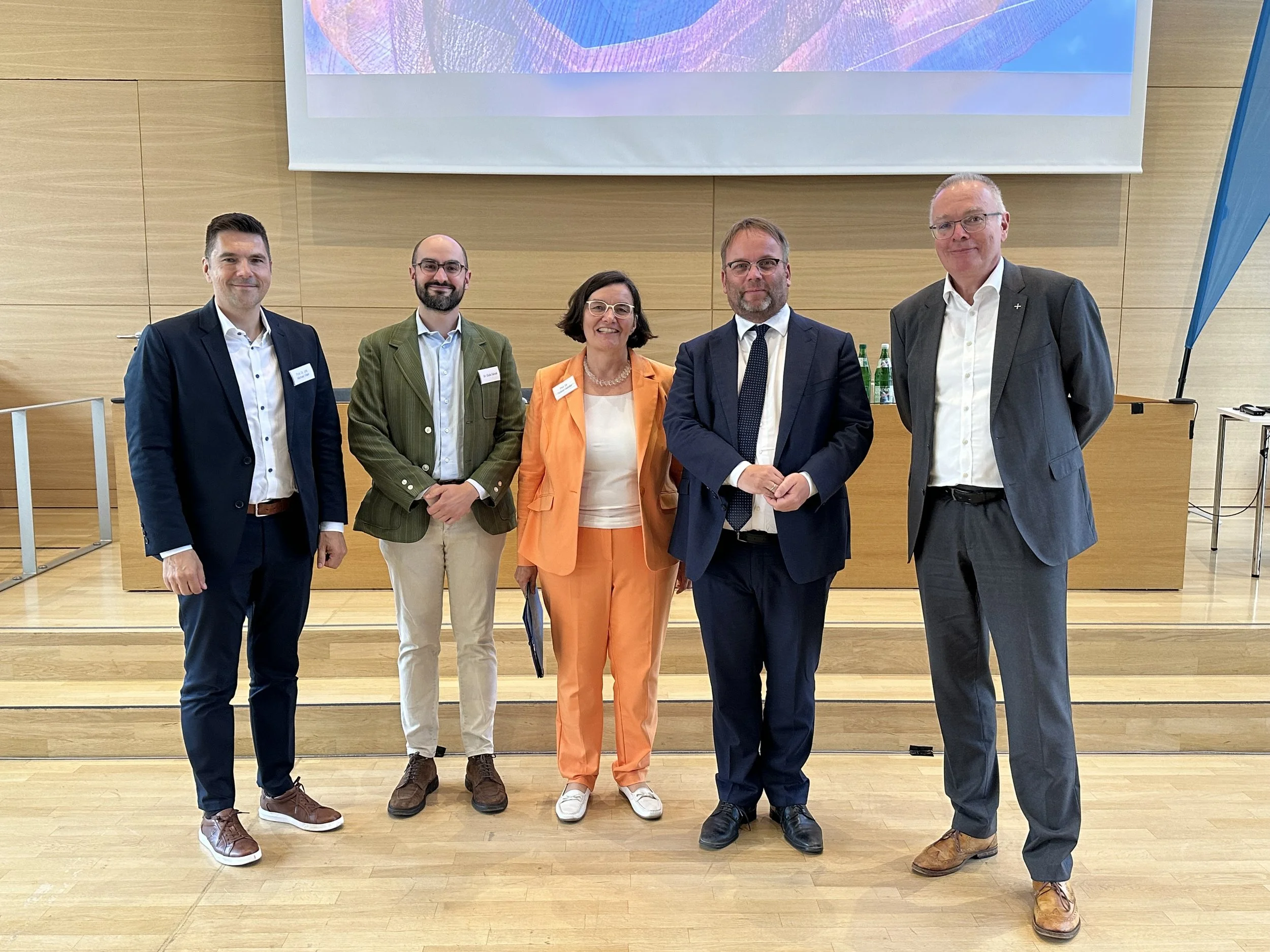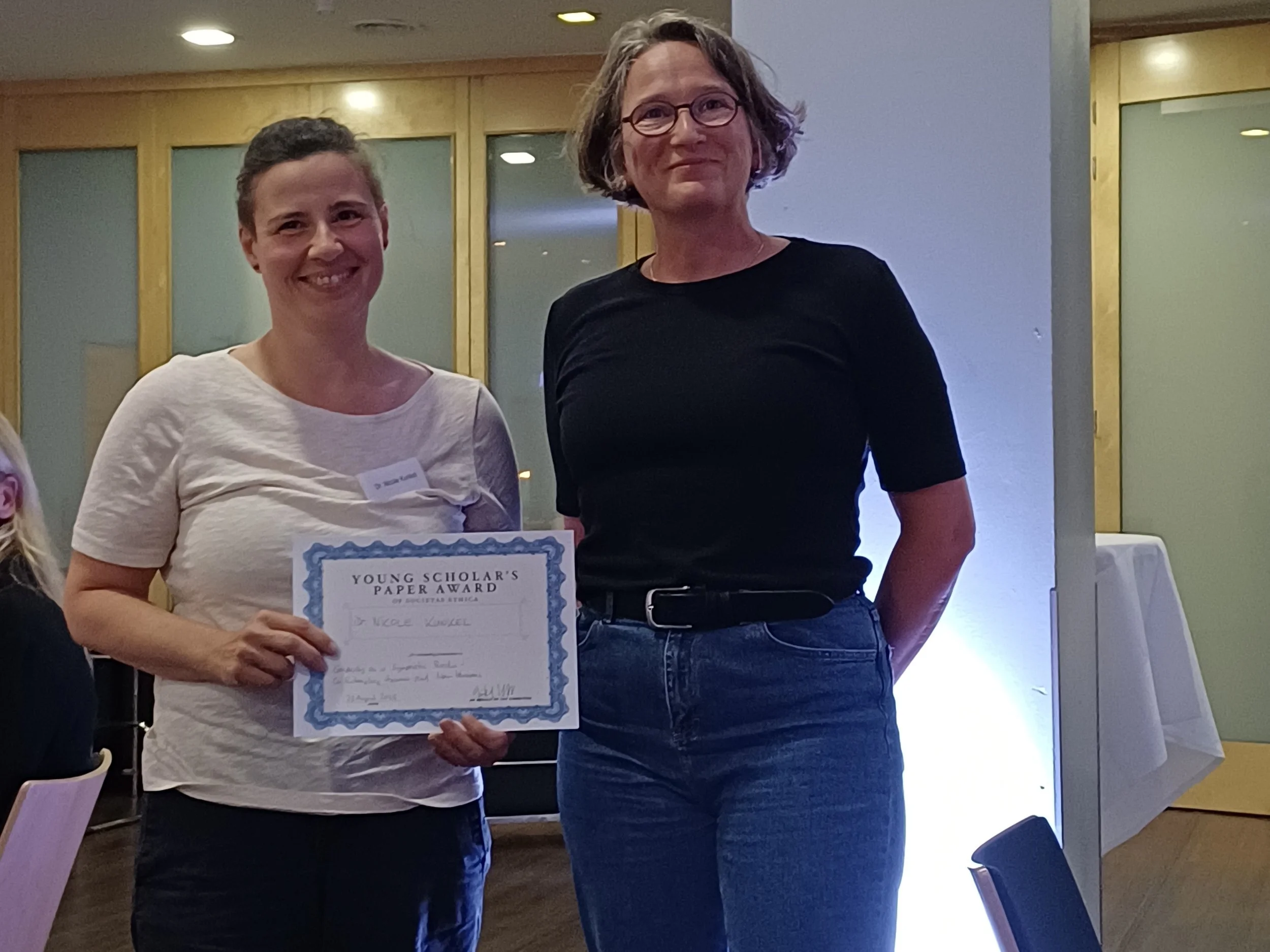Die Technische Universität Braunschweig zählt zu den führenden Technischen Universitäten in Deutschland und bietet Ihnen als Arbeitgeberin eine große Auswahl an modernen, anspruchsvollen und vielseitigen Arbeitsplätzen. Nicht nur im Bereich der Forschung und Lehre, auch in Verwaltung, Technik und Handwerk sorgen ca. 3.800 Beschäftigte dafür, dass unsere Universität ihren Bildungsauftrag für die nahezu 16.000 Studierenden und ca. 100 Auszubildenden in einem breiten Lehr- und Forschungsspektrum mit hervorragender Ausstattung und gleichzeitig persönlicher Atmosphäre erfolgreich erfüllt.
Wir suchen für den Forschungsservice eine*n
Mitarbeiterin / Mitarbeiter (m/w/d) für den Bereich Aufbau eines neuen Beratungsbereichs zum Thema Responsible Research
Kennziffer: 12.29-06/25
(EG 13 TV-L - Vollzeit, befristet bis 31.12.2032)
Die Besetzung ist zum nächstmöglichen Zeitpunkt geplant.
Der Forschungsservice ist die zentrale Anlaufstelle der Universität für nationale, internationale und EU-Förderberatung. In diesen Rahmen ist auch die Unterstützung zum Themenbereich „Responsible Research“ eingebettet. Mit dem Aufbau des neuen Beratungsangebots wird das Ziel verfolgt, einen sicheren Rahmen für die Umsetzung wissenschaftlicher Aktivitäten an der TU Braunschweig zu schaffen. Daher umfasst der Aufgabenbereich den Aufbau einer Beratungsstruktur, die die Themenbereiche Nagoya-Protokoll, Agieren in internationalen und ethisch herausfordernden Kontexten sowie die Begleitung des Ausbaus der Aktivitäten der Kommission für Ethik sicherheitsrelevanter Forschung (KEF) beinhaltet.
Ihre Aufgaben
Sie konzipieren das Projekt „Responsible Research“ und setzen das Pilotprojekt um
Sie beraten Forschende in allen Fragen zum Thema „Responsible Research“
Sie entwickeln Informationsformate und Webseiteninhalte
Sie begleiten die KEF und den Aufbau der zugehörigen Veranstaltungsreihe
Sie verbinden die internen und externen Akteure in diesem Themenfeld
Sie begleiten Netzwerkaktivitäten.
Ihre Qualifikation
Sie haben eine abgeschlossene wissenschaftliche Hochschulbildung (Master oder vergleichbar) und verfügen über Erfahrungen im Bereich „Responsible Research“
Sie begeistern sich für die Konzeption und Entwicklung von neuen Strukturen und Prozessen sowie die Vermittlung von Inhalten und bringen idealerweise Interesse an der Umsetzung rechtlicher Rahmenbedingungen mit
Sie besitzen sehr gute Kenntnisse in einem der angesprochenen Themenbereiche und können im besten Falle bereits auf ein Netzwerk an Kontakten zurückgreifen
Ihre hervorragenden Kommunikationsfähigkeiten, persönliches Engagement, Verhandlungsgeschick, eine ausgeprägte Dienstleistungsbereitschaft sowie die Fähigkeit, sich in verschiedenste komplexe Thematiken einzuarbeiten und auf unterschiedliche Akteure eingehen zu können runden Ihre Erfahrungen ab.
Wir bieten
eine tarifgerechte Bezahlung nach Entgeltgruppe 13 TV-L je nach Aufgabenübertragung und Erfüllung der persönlichen Voraussetzungen
eine Sonderzahlung zum Jahresende sowie eine Zusatzversorgung als Betriebsrente, vergleichbar einer Betriebsrente in der Privatwirtschaft
ein spannendes, dynamisches Umfeld mit kreativem Freiraum in einem zielorientierten, kooperativen Team
ein grundsätzlich teilzeitgeeigneter Arbeitsplatz, der jedoch vollständig besetzt sein sollte, sowie flexible Arbeits- und Teilzeitmodelle und eine familienfreundliche Hochschulkultur, seit 2007 ausgezeichnet mit dem Audit „Familiengerechte Hochschule“
ein vielfältiges Weiterbildungs- und Sportangebot sowie ein lebendiges Campusleben in internationaler Atmosphäre.
Weitere Hinweise
Wir freuen uns auf Bewerber*innen aller Nationalitäten. Gleichzeitig begrüßen wir das Interesse schwerbehinderter Menschen und bevorzugen deren Bewerbungen bei gleicher Eignung. Bitte weisen Sie bereits bei der Bewerbung darauf hin und fügen Sie einen Nachweis bei. Ferner arbeiten wir basierend auf dem Niedersächsischen Gleichberechtigungsgesetz (NGG) an der Erfüllung des Gleichstellungsauftrages. Daher freuen wir uns besonders über Bewerbungen von Frauen.
Bewerbungskosten können leider nicht erstattet werden.
Wir freuen uns auf Ihre Bewerbung!
Bitte beachten Sie dabei, dass lediglich Bewerbungen, die über das Online-Formular der TU Braunschweig eingehen, berücksichtigt werden können.
BEWERBUNGSFRIST
Wir freuen uns auf Ihre Online-Bewerbung bis zum 15.08.2025.
ANSPRECHPERSONEN
Sie haben noch Fragen?
Diese beantwortet Ihnen gerne
Andreas Hebbelmann
T + 49 531 391-4276.
Für Fragen zur Online-Bewerbung wenden Sie sich bitte an
Kay Bähre, T. + 49 531 391 4164 bewerbungsmanagement@tu-braunschweig.de
https://www.tu-braunschweig.de/die-tu-braunschweig/karriere/arbeiten-an-der-tu
Link zur Ausschreibung und Formular:
https://vacancies.tu-braunschweig.de/jobposting/50b4c73953c56cb26c6311251af5c748dd1134bd0?ref=homepage.















